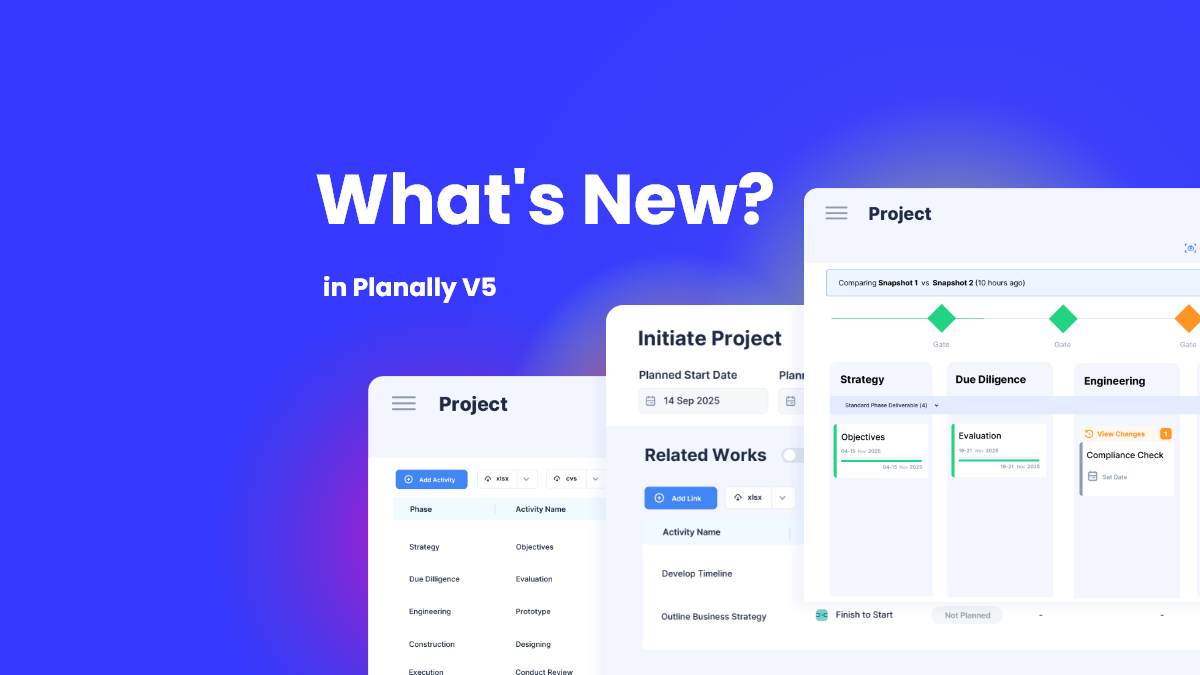 In any organization, consistency is key. Whether you’re managing product launches, compliance processes, or internal approvals, having a standard roadmap within a workflow automation system ensures that teams follow the same best practices across the board. Without it, workflows can become chaotic, leading to inefficiencies, misalignment, and compliance risks.
In any organization, consistency is key. Whether you’re managing product launches, compliance processes, or internal approvals, having a standard roadmap within a workflow automation system ensures that teams follow the same best practices across the board. Without it, workflows can become chaotic, leading to inefficiencies, misalignment, and compliance risks.
That is where a fit-for-purpose roadmap comes in. A well-specified roadmap in a workflow automation platform ensures that every initiative follows the same structured path, with clear task ordering, approval points, and role assignment. It establishes governance, improves efficiency, and ensures no critical step is omitted.
Why Standardization Matters in Workflow Automation
A lack of standardization in workflows often results in:
- Inconsistencies between teams – Without a roadmap, different teams would operate differently and thus lead to communication problems and wastage.
- Compliance Risks – Businesses in regulated industries have to comply with strict processes. With a standardized roadmap, compliance to a company policy as well as external regulations is made significantly easier.
- Bottlenecks and delays – When tasks and approvals aren’t clearly defined, projects can get stuck waiting for next steps.
 As discovered by a McKinsey report (Mckinsey 2024, Link), well-structured workflows improve productivity by up to 30% by reducing redundant tasks and ensuring smoother execution. Standardization plays a critical role in achieving this efficiency.
As discovered by a McKinsey report (Mckinsey 2024, Link), well-structured workflows improve productivity by up to 30% by reducing redundant tasks and ensuring smoother execution. Standardization plays a critical role in achieving this efficiency.
The Role of a Fit-for-Purpose Roadmap
A fit-for-purpose roadmap ensures that every initiative in an organization has a predetermined, structured workflow that is agreed upon by stakeholders. This is how it creates value:
- Defines Every Stage of the Workflow – A roadmap specifies what needs to be done at each phase, ensuring that no step is missed.
- Enforces Compliance and Governance – By embedding approval requirements and responsibilities, organizations can enforce compliance without manual oversight.
- Enhances Team Accountability – Proper role assignments eliminate uncertainty, making all team members aware of what is expected of them to resolve delays and confusion.
According to a Harvard Business Review study, it is identified that companies with formalized processes experience 40% less project failure because clear execution means better results.
How Planally Helps Organizations Standardize Workflows
Planally makes it easy to develop and enforce fit-for-purpose roadmaps in workflow automation for organizations. Here is how it goes about doing this:
- Customizable Roadmaps – Define every phase of a workflow, including the tasks and roles required.
- Built-in Approvals – Define approval steps to ensure governance at every step.
- Role-Based Assignments – Assign the right teams to the right workflows, ensuring accountability.
- Scalability Across Teams – Once a roadmap is created, it can be applied across multiple departments, ensuring organization-wide standardization.
Using Planally, organizations can eliminate inconsistencies, improve compliance, and accelerate execution—all while maintaining full control over their workflows.
Ready to Standardize Your Workflows?
If your business is struggling with inconsistent processes or compliance risk, it might be time to bring a fit-for-purpose roadmap into your workflow automation strategy. Book a demo with Planally to discover how structured workflows can bring clarity, efficiency, and governance to your company.
Explore Planally and get started today!



